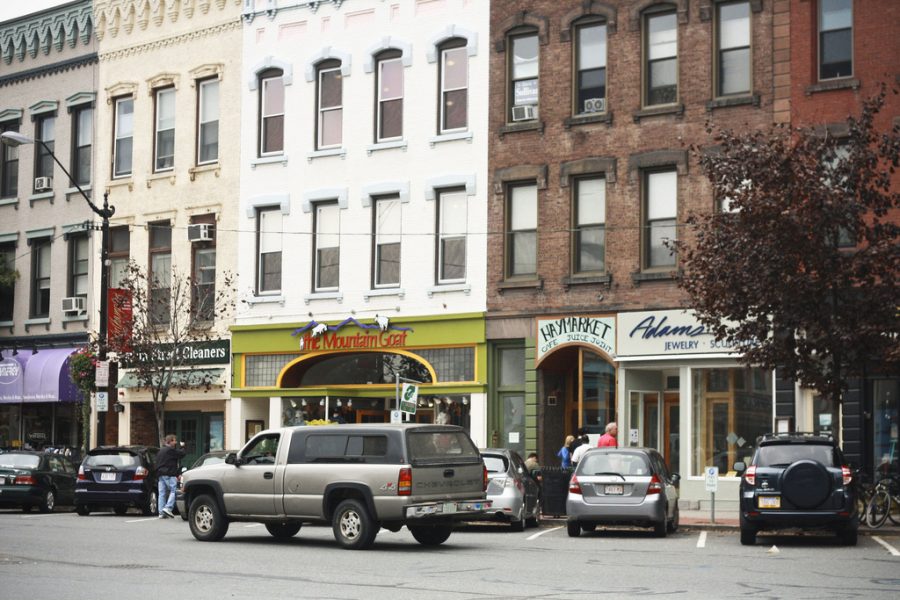The Northampton City Council voted 7-1 to adopt the city’s capital improvement program for the fiscal years 2019-2023 on Thursday night following a public hearing on the plan.
The capital improvement program, which is presented by the mayor at the beginning of every fiscal year, provides a plan for various financial projects throughout the city, including funding for school resources, infrastructure improvement projects and equipment for city employees like firefighters and police officers. The plan sparked particular controversy due to its proposed funding for “tactical equipment” like Plexiglas shields, riot helmets and gas masks along with increased tactical training for officers.
The public hearing began with Northampton Mayor David Narkewicz giving an outline of the capital improvement program, which was followed by the mayor reading a written memo from Northampton Chief of Police Jody Kasper, who looked to alleviate some of the public’s fears.
“There is no change in our philosophy related [of] handling demonstrations and protests,” Kasper wrote in the memo. “Despite what rumors are swirling through social media, I have absolutely no intent of purchasing all of our staff riot suits and shields, or in changing the way that we have managed protests and marches.”
Following Narkewicz’s statements, Northampton residents were able to comment on the proposed capital improvement program—most statements were arguments against the adoption due to the proposed funding for riot gear.
Jennifer Nye, a lecturer in law and social justice at the University of Massachusetts and a Northampton resident, submitted a written statement that was read to the board. In it, Nye stated that she felt the funding could be better used elsewhere.
“Why not use this money to hire another teacher or classroom aide? And I’m sure that the city will have extra public works expenses leading to numerous potholes across the city streets. But really, any use of this money will be better than more riot gear for police,” Nye stated.
Other worries from Northampton residents included the fear of militarizing the police as well as the potential for increases in riot gear for officers to lead to further negative treatment of minority individuals or groups in Northampton.
Daniel Chard, a UMass history lecturer and a Northampton resident, called for the adoption of alternative methods of crime reduction other than increasing tactical gear for police officers.
“What we can do is in a time where people are starting to question what has been a common-sense response of policing as a response to all these problems, we can be a part of, as we have been in Northampton…to have accountability and oversight and transparency for the political decisions around policing,” Chard said.
In addition, Kasper’s memo focused on how the proposed funding for police equipment would provide officers with less lethal methods of stopping any threats or dangerous situations.
Kasper wrote in the memo, “If [police officers] are not able to [deescalate a threat], and the subject advances on the officers or another citizen, using the less lethal weapon serves as an alternate to firing a sidearm.”
Mayor Narkewicz made sure to highlight some of the other funding projects that are a part of the proposed plan, including a one-to-one Chromebook project that looks to ensure every student for the Northampton middle school and high school receives a Chromebook laptop, as well as various energy saving projects. The capital improvement program consists of 113 projects that total in costs to $80,648,474.
Narkewicz also emphasized how the capital improvement plan served mainly as a plan for future projects, with the actual orders for funding coming at a later time.
“This document is really a planning document. It is a planning exercise where the city has to, every year, on an annual basis, show that it is planning and looking ahead over the next five years,” Narkewicz said.
“Voting on this plan is really voting for the plan and then later, we bring forward the actual spending and borrowing orders, not only in this fiscal year but in the ensuing fiscal years,” he added.
Will Mallas can be reached at [email protected].




















